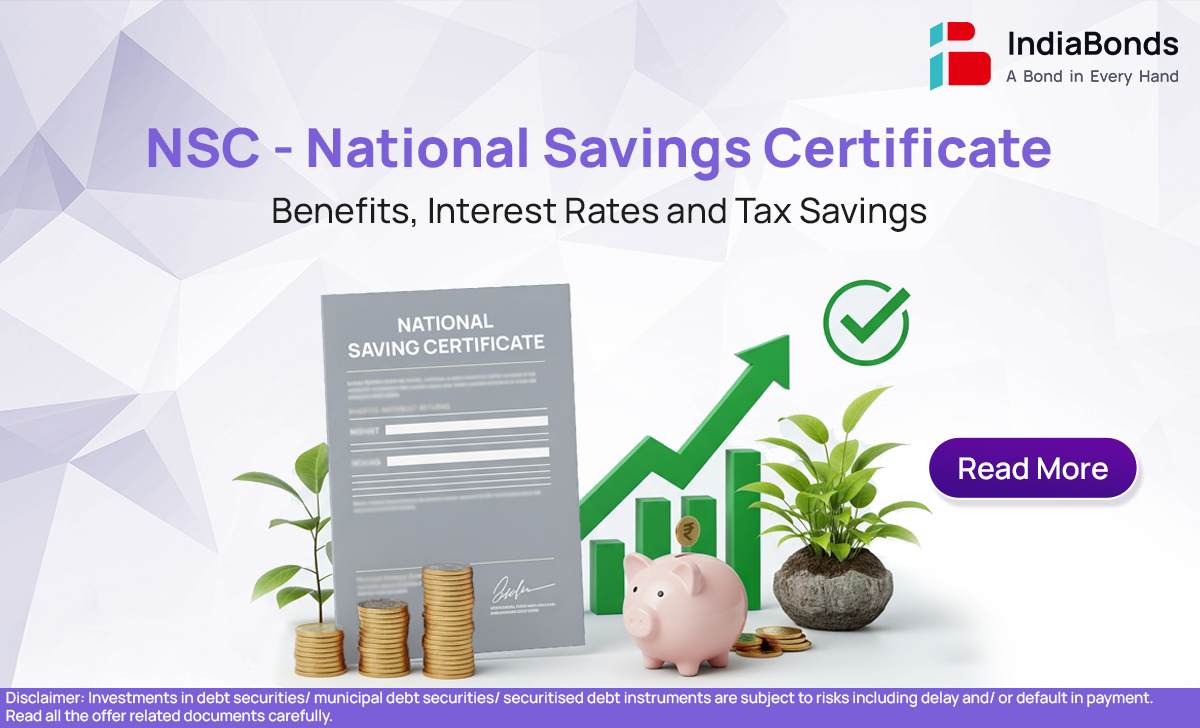
Not everyone wants to invest in the stock market or chase high returns with high risks. Some of us just want a safe place to park our money, earn a bit of interest, and save on taxes while we’re at it. If that sounds like you, then the National Savings Certificate (NSC) might be exactly what you’re looking for
It’s simple, secure, and doesn’t require you to be a finance expert. Let’s break it down in plain English.
Think of NSC as your low-stress money companion. It’s a government-backed savings scheme offered at post offices, where you invest a lump sum for five years, and in return, your money grows at a fixed interest rate. No surprises. No market drama.
At the end of five years, you get back your original amount plus interest. That’s it. It’s a great fit if you’re the kind of person who prefers steady returns over risky bets.
Let’s face it—most of us want to save, but without taking on too much risk. Here’s why NSC works well for so many:
So whether you’re just starting your savings journey or looking to diversify your portfolio, NSC is an easy choice that doesn’t require too much thought or effort.
NSC is great for:
Basically, if you want no-nonsense, stable growth, NSC delivers.
If you’re:
Even minors can invest through a parent or guardian. Just keep in mind, NRIs and HUFs aren’t allowed to invest in NSC.
Traditionally, people have gone to their local post office, filled out a form, handed over the money, and got their NSC certificate. That still works perfectly fine.
But if you’re more of an online person, you can also buy National Saving Certificate online, provided you have a Post Office Savings Account and internet banking enabled.
You’ll get a digital certificate and can keep track of it online. No more digging through drawers to find a paper certificate.
Nothing fancy. Just the basics:
One of the biggest perks of NSC is its tax advantage. Here’s how it helps:
So if you’re planning your investments for the financial year, this is a great way to not just grow your money, but also shrink your tax bill.
If you lose or misplace your NSC certificate, just visit the same post office where you bought it. They’ll help you get a duplicate, as long as you provide:
They’ll verify your details and reissue the certificate.
You can claim up to ₹1.5 lakh under Section 80C. Plus, the interest is reinvested (except in the final year), and that reinvested amount also qualifies for deduction.
With the current interest rate of 7.7%, ₹1 lakh grows to approximately ₹1.45 lakh in 5 years. All of it is guaranteed.
Both are safe and offer similar tax benefits. But NSC generally gives a slightly higher return, and there’s no TDS on interest. So NSC usually has the edge if you’re looking for more efficient returns.
The national savings certificate interest rate is 7.7% per annum (compounded annually) for the July–September 2025 quarter.
NSC may not be the most exciting investment out there—but it doesn’t need to be. It’s reliable, safe, and tax-friendly. In a world full of complex financial products, NSC is refreshingly simple.
You invest once, and after five years, you walk away with more money and less tax stress. That’s a win-win in anyone’s book.
If you’re looking for a no-risk, no-fuss way to grow your savings, NSC is a solid place to start
Disclaimer : Investments in debt securities/ municipal debt securities/ securitised debt instruments are subject to risks including delay and/ or default in payment. Read all the offer related documents carefully.